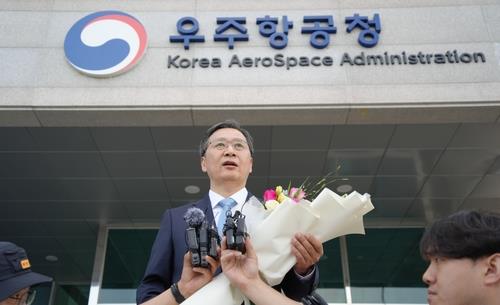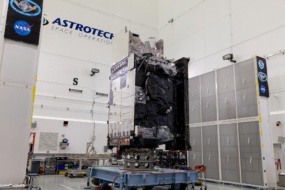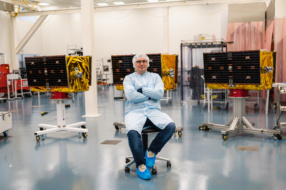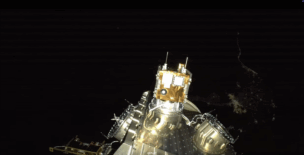The South Korean space agency plans to invest 806.4B won ($562.5M) into R&D projects this year, Yonhap News Agency reported yesterday.
The second budget from the Korea AeroSpace Administration, which was established in May, will increase R&D spending by a whopping 43.3%. The nation’s aim is to become one of the top five countries leading the way on aerospace technology.
The details: KASA will invest in R&D across several segments of the space industry, including:
- 187.4B won ($130.5M) on research projects at the Korea Aerospace Research Institute and the Korea Astronomy and Space Science Institute (KASI)
- 150.8B won ($105M) to develop a new rocket
- 35B won ($24.4M) for a comms sat in GEO
- 24.9B won ($17.3M) on a microsatellite swarm
- 500M won ($348K) to work on building reusable rocket hardware
That last line item will help the agency with its long-term goal of having a domestic reusable rocket by the mid-2030s that would cost $1,000 to carry 1 kg to orbit.
Moonward bound: The Korean space agency is also partnering with NASA to launch KASI’s Lunar Space Environment Monitor on Intuitive Machine’s third lunar mission under the CLPS program. The 2025 budget invests 7.3B won ($5.1M) in the system, which will monitor the Moon’s surface for high-energy particles
KASA is also working on its solo capabilities domestically and is planning to spend 45B won ($31.3M) on “independent lunar spacecraft development.”




